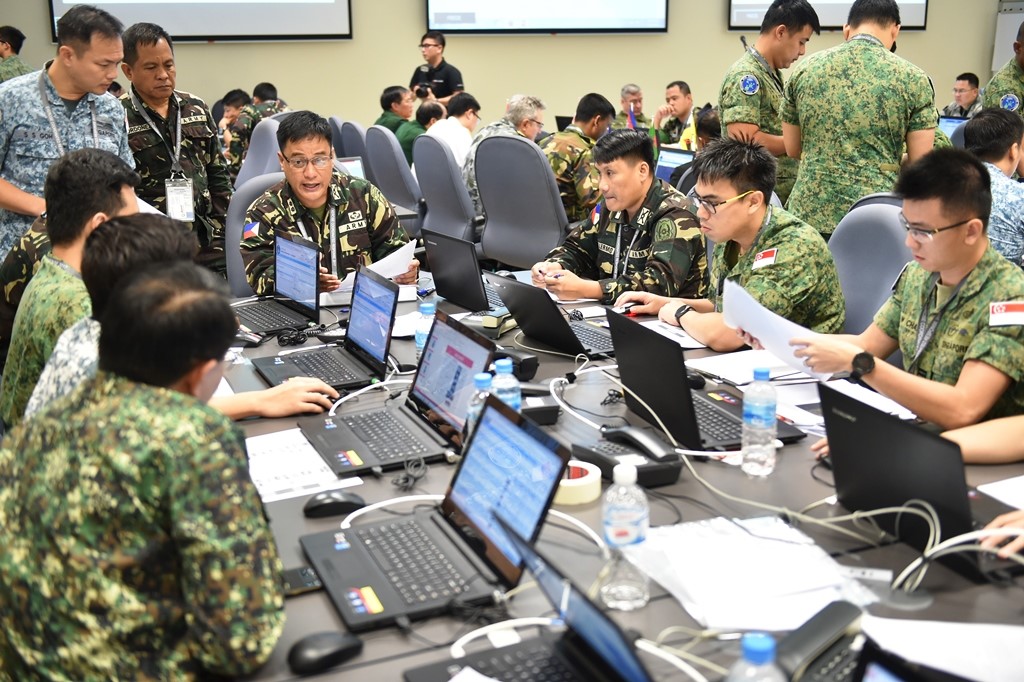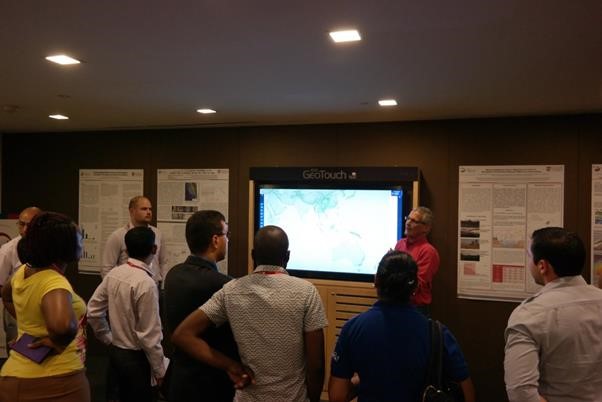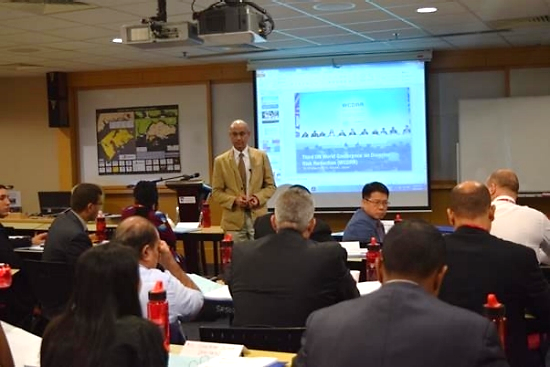Singapore: Working together with UNISDR and partners to strengthen resilience
Singapore and the United Nations Office for Disaster Risk Reduction (UNISDR) have been collaborating to strengthen the disaster risk management capacity of Small Island Developing States (SIDS) and other developing countries that are vulnerable to natural disasters and are on the front line of climate change.
Two joint specialised training courses had been conducted in Singapore in the last two years to provide practical support and knowledge for the implementation of the Sendai Framework for Disaster Risk Reduction to countries such as Botswana, Brunei Darussalam, Djibouti, Ecuador, Fiji, India, Jordan, Mauritius, Nauru, the Philippines, Seychelles, Solomon Islands, Sri Lanka, Sudan, Trinidad and Tobago, Timor-Leste and Togo.
Experts and practitioners from Singapore and UNISDR shared their expertise during these courses on climate change adaptation measures, building resilience in communities, disaster risk governance, sustainable urban planning, public health resilience, disaster risk finance and insurance, mainstreaming disaster risk reduction into national strategies, and the development of action plans to help countries master a risk-informed and integrated approach towards sustainable development.
Singapore has participated in numerous Humanitarian Assistance and Disaster Relief (HADR) operations overseas over the years. Singapore is also building our capacity to serve as a regional hub for HADR operations. We set up the Regional HADR Coordination Centre (RHCC) in Singapore in 2014.
The RHCC works closely with stakeholders like UN OCHA and the ASEAN Coordinating Centre on Humanitarian Assistance (AHA), to better coordinate military-military and military-civil disaster response in our region, and assist affected national authorities in their relief efforts. In January 2017, the RHCC co-organised its first multinational HADR exercise – Exercise Coordinated Response (Ex COORES) 2017 – with the Armed Forces of the Philippines (AFP), the United States (US) Center for Excellence in Disaster Management and Humanitarian Assistance (CFE-DM). Some 150 representatives from 18 militaries from across the Asia-Pacific region and Europe, and observers from 12 international organisations, governmental agencies and non-governmental organisations (NGOs) participated in this exercise.
The Singapore Civil Defence Force (SCDF) has officers on stand-by for deployment under the United Nations Office for the Coordination of Humanitarian Affairs to disaster-hit countries for rapid disaster assessment and coordination. SCDF has also obtained the International Search and Rescue Advisory Group (INSARAG) External Classification of its Operation LionHeart Contingent as a Heavy Urban Search and Rescue Team.
Singapore will continue to seek practical and impactful ways to support international efforts to strengthen resilience and build national and regional capacity to respond to disasters and other humanitarian challenges.

Participants from different militaries working together during Exercise Coordinated Response (Ex COORES) 2017. (Photo: Singapore Ministry of Defence website)


Left: Participants visiting the Earth Observatory of Singapore during the Singapore-UNISDR joint training course in 2015 (Photo: Permanent Mission of the Republic of Singapore in Geneva website)
Right: Mr Sanjaya Bhatia, Head, UNISDR Office for Northeast Asia and Global Education and Training Institute (GETI), speaking to participants of a Singapore-UNISDR joint training course about the Sendai Framework for Disaster Risk Reduction. (Photo: UNISDR)